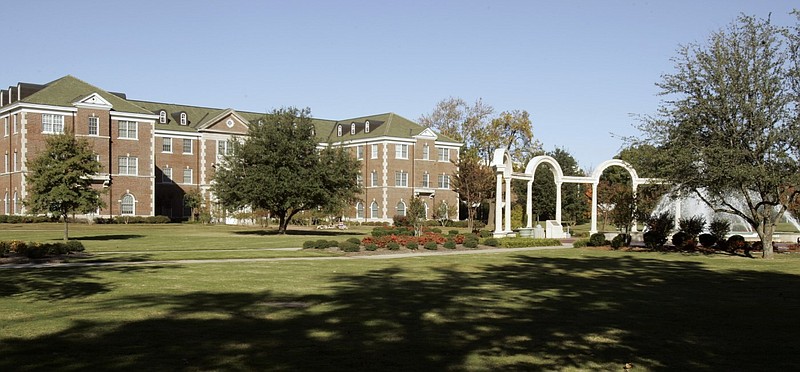CONWAY -- When Belleville, Ill., native Alexis Ray, 22, first stepped foot on the campus of the University of Central Arkansas, she didn't know a soul.
That's when she started seeing flyers for "Mentor Mayhem," a picnic sponsored by the university's Minority Mentorship Program.
"I was like, 'What is that?'" Ray, now a senior majoring in special education, said. "UCA is a predominantly white institution. Before I came here, I was worried that I wouldn't find people that looked like me. So when I went to Mentor Mayhem, I saw all these people that looked like me. I was like, 'Wow. This is going to be my community. This is where I'm going to find myself throughout my years in college.'"
The Minority Mentorship Program was started at the college in 1991 by its Office of Diversity and Community as a way to increase retention and graduation rates for the university's underrepresented populations -- black, Hispanic and Asian.
UCA currently has 11,177 students. About 25% of undergraduates and 16.8% of graduate students are members of minority groups.
Under the program, upperclassmen are trained as mentors to incoming freshmen students, not only helping them navigate the campus, but also introducing them to college life, both academically and socially. The mentors help the new students with health issues, life skills, study habits and interpersonal skills.
"I am very proud of the student leaders who participate in the Minority Mentorship Program," said UCA President Houston Davis. "MMP leaders help empower underrepresented first-year students by making their transition to college life smooth and successful. The impact these student leaders make on campus is multiplied by the strong relationships they form and the student engagement fostered through their outreach."
The program kicks off with "Transitions Week" in the second week of the fall semester. It's during this time that the students who sign up for the mentorship program are paired with their mentors.
The rest of the year is filled with monthly programs and events.
The number of students accepted into the program is capped at 170. The students are paired with about 85 mentors, said program adviser Dierre Littleton. More than 5,000 students have gone through the program since its inception.
"It's a first come, first served basis," Littleton said. "What we try to do then is pair those 170 mentees with the most compatible mentor. So we've got two mentees per mentor."
The process for becoming a mentor is a competitive one. Each potential mentor has to complete an application and go through an interview process.
"It's a tedious process," Littleton said, adding that those accepted as mentors are then subjected to an "intensive" two-day training program.
After her first year, Ray became a mentor. She is now a member of the program's 11-member executive board.
"Your mentor helps transition you into college. They help you with your leadership skills. They help you with things as simple as library hours, stuff like that," Ray said. "So it doesn't end after your first year. After that first year, they can become a mentor, but that doesn't mean that your mentor stops being your mentor."
Like Ray, senior psychology and pre-med major KaRon Marbley of Pine Bluff is a mentor and a member of the executive board. He echoed Ray's sentiments.
"Your mentor stays in your life. It's not a one-year thing," Marbley said. "Like my mentor, we've been talking since 2016, and now we've become friends. Everything I'm doing now, he's already done."
The mentors are encouraged to stay in contact with their mentees and to go out on a frequent basis to visit and talk, Littleton said.
The regular contact and relationship, Marbley said, helps the new students feel that they are not alone.
"There needs to be a natural separation between mentor and mentees, but it's still a friendship," Marbley said. "It tells them, 'I see you. I recognize you. I'm here.'"
The benefits of the Minority Mentorship Program go beyond the social aspects, Davis said.
"Data has shown UCA students involved in the program have higher grade-point averages and higher participation rates in registered student organizations," he said.
Also, program members serve outside the UCA campus, reaching out to the community and beyond.
Last year, Minority Mentorship Program students worked with the National Panhellenic Council and the Caribbean Student Association to raise money and gather items to assist those affected by Hurricane Dorian. A candlelight vigil was also organized by the group and was held at the UCA amphitheater.
Littleton said leaders are working this school year to strengthen the program even more, increasing its offerings and raising its number of participants.
"I'm hoping that the trend of enrollment will start to increase for minorities and that we'll be able to expand our services and our interactions for minority students here at UCA," Littleton said. "I'm hoping that we build more and more students who will pour back into the program."
SundayMonday on 01/20/2020
